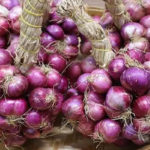It is common to find vegetables in the kitchen that, if unused for a long period, may spoil or sprout. One such vegetable is the onion. Many people believe that sprouted vegetables, including onions, should not be consumed due to health concerns. So, is it safe to eat sprouted onions? Let’s find out!
1 Reasons for Onion Sprouting
Onions, similar to other bulbous vegetables, can initiate sprouting when exposed to favorable environmental conditions, even without being planted in the ground. If stored in humid and well-lit areas, onions are highly likely to sprout.
Onions grown in the ground derive their nutrition from the soil, whereas onions sprouting in the kitchen or elsewhere above ground will utilize their stored nutrients and sugars to produce sprouts.
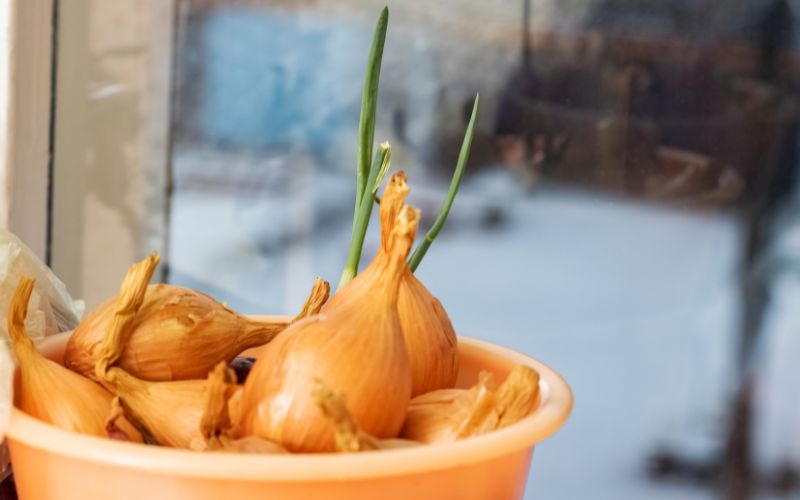 Reasons for Onion Sprouting
Reasons for Onion Sprouting
2 Can Sprouted Onions Be Eaten?
In fact, nearly all parts of an onion are edible, even when they have started to sprout. However, the taste of sprouted onions may alter, becoming more bitter than sweet like fresh onions. This change in flavor occurs because the sprouting process consumes the onion’s stored sugars, but it does not render the onion toxic.
Additionally, if sprouted onions are left for too long, they can become susceptible to fungal growth, leading to spoilage, a foul odor, softening, and the appearance of mold spots or dark discolorations. These onions should be discarded rather than consumed.
Furthermore, if you notice brown or green powdery substances when peeling the onion, it indicates mold growth, and the onion should be thrown away.
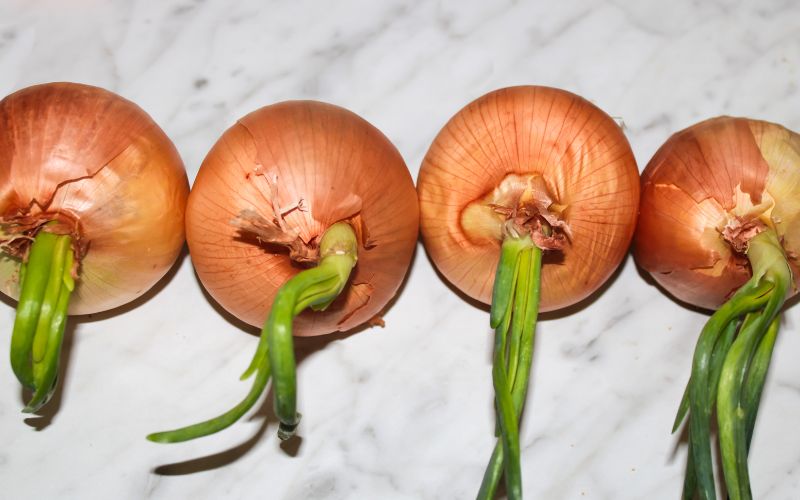 Sprouted Onions: Edible or Not?
Sprouted Onions: Edible or Not?
3 How to Cook with Sprouted Onions
Onions that have just started to sprout and remain fresh can be used for cooking, just like regular onions, but they should not be consumed raw. You can also use sprouted onions for garnishing dishes.
If you prefer not to eat the sprouted parts, you can trim off the green shoots, remove any damaged portions, and thoroughly wash the onion before using it for cooking.
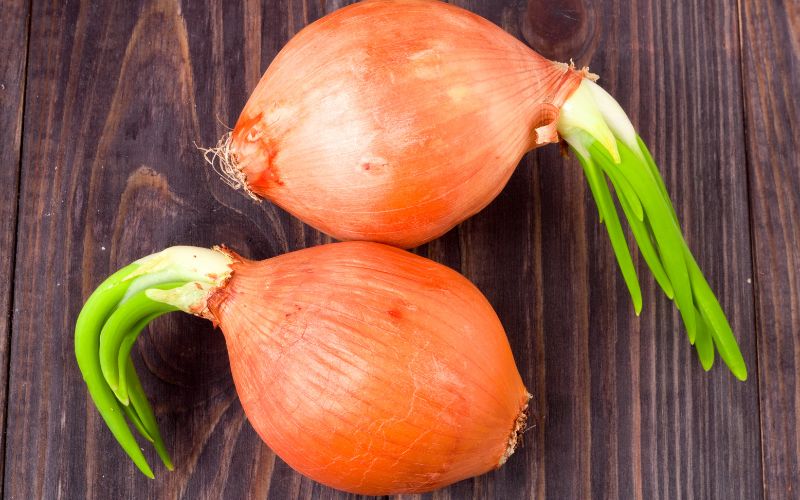 Cooking with Sprouted Onions
Cooking with Sprouted Onions
4 Tips for Storing Onions to Prevent Sprouting
Although sprouted onions are generally safe to eat, it is important to be cautious about potential mold growth that could impact your health. Here are some tips for storing onions to minimize sprouting:
- Store onions at a temperature between 10-15°C (50-59°F) in a well-ventilated area, away from direct sunlight.
- Place onions in a basket or on a rack to ensure adequate air circulation around them.
- Avoid storing onions in plastic bags as they tend to trap moisture, promoting sprouting.
- Do not store onions together with potatoes or other sprouting vegetables.
- Consider storing onions in the refrigerator to prevent mold and prolong their shelf life.
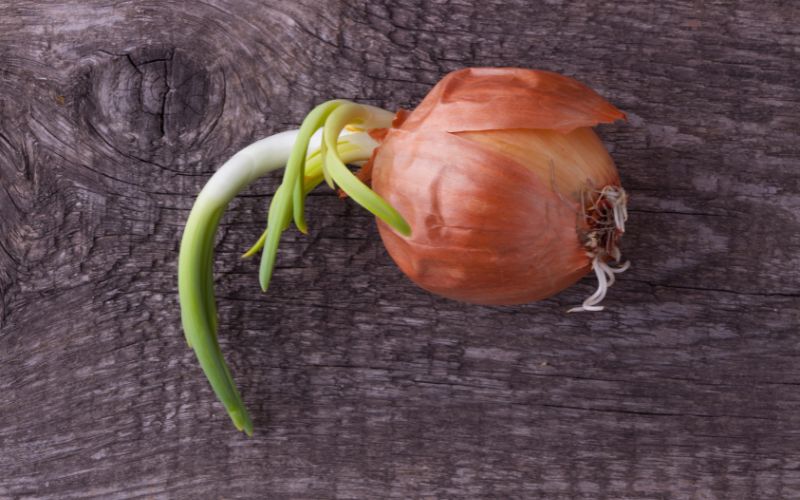 Tips for Storing Onions
Tips for Storing Onions
Sprouted onions are generally safe to consume and do not pose any toxic risks, contrary to popular belief. However, if the onion shows signs of mold, has a foul odor, or has become soft, it should be discarded.
Source: Vietnamese Women’s Newspaper
























